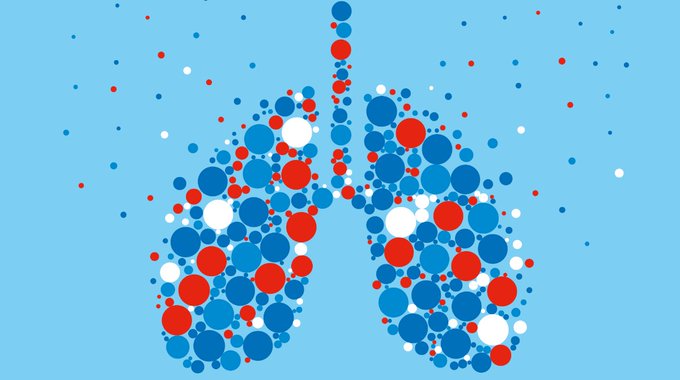From the ‘British Lung Foundation’
Predicting the future for patients with IPF and COPD

Professor Louise Wain is part of the Genetic Epidemiology Group at University of Leicester, and the British Lung Foundation Chair in Respiratory Research. Her research focuses on genetic factors that contribute to risk of developing respiratory disease. Here she tell us about her work to understand more about COPD and IPF in order to help us develop new treatments.

Professor Louise Wain
Idiopathic Pulmonary Fibrosis (IPF) is a condition that causes the lungs to scar up, which means they don’t work properly. It’s a terminal illness – sadly, most patients only survive 3-5 years after diagnosis. The only treatments we have currently don’t reverse the disease, they only slow it down, and they don’t work for everyone.
Chronic obstructive pulmonary disease (COPD) is a much more common disease and it’s most common amongst people who have smoked or who do smoke. But it can also affect people who don’t smoke or who might be exposed to other inhaled pollutants in the air too. It causes swelling in the lungs and, like IPF, it can prevent oxygen from entering the bloodstream. There are no current treatments that can cure it.

The link between genetics and disease
My research is looking at how your genetics affect your risk of developing these diseases, and how they might progress. So we’re looking at the DNA of people who have these diseases and people who don’t. We want to see if there are any differences that might explain why some people go on to develop IPF and COPD, and some don’t. And we can potentially use that to then understand why the disease is happening and try and find new ways of treating it.

Using DNA to predict the future
We’re also looking at the DNA of people with the same diagnosis; they may have the same disease but different symptoms, or their disease progresses at a different rate. At the moment, it’s hard for doctors to know what’s going to happen over the course of the patient’s disease. Using genetic information will give us some insight into this, which will help us make decisions about treatments, or better support the patient with their prognosis.

Making new associations to save lives
So far, for COPD we’ve identified more than 300 positions within our DNA that are different between people who have good lung function versus those that have bad lung function. We’re in the process of going through those to identify which can tell us something useful about the disease. Similarly for IPF, although we’ve got a greater challenge because it’s a much less common disease. This means we have smaller sample sizes and we haven’t identified as many associations yet. But we’re making progress and finding bigger and bigger studies so we can identify more genes.
My aim is to use this information to develop new treatments, identifying new ways to intervene. We have ways to make people feel a bit better but what we really want to do stop these diseases or reverse them completely.

